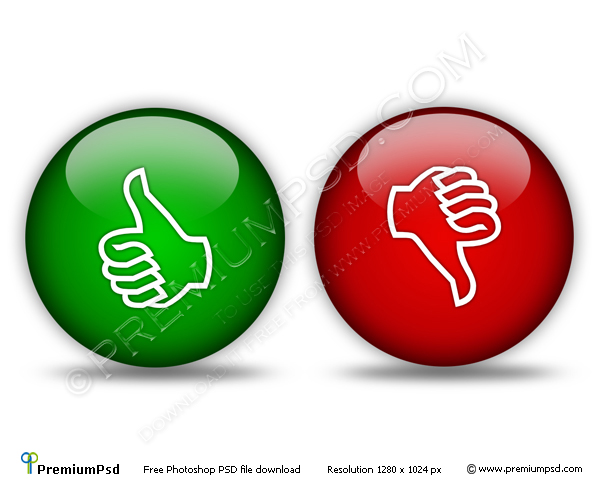It is that time of year again, folks! By which I mean: Passover. Heretofore referred to by the Hebrew name of Pesach, because that’s how it is in my head. (Note: all of the following refers to Ashkenazic practices of Pesach. Sephardic practices are very different, but I am not familiar enough with them to write a compare/contrast piece.)

For those of you who don’t know, Pesach is, to borrow a friend’s favorite suffix, crazypants.
This friend also laments the fact that when you see Jewish characters in fiction, the only holiday they usually talk about is Hanukkah, as if that is the big poobah of the Jewish calendar. To that we say, HA. Hanukkah is one of the least important Jewish holidays from a religious standpoint, since it was instituted purely by the rabbis and not by the Torah itself, and also requires relatively little action, both during the holiday and in preparation for it. Basically, you gotta buy candles or oil and dust off your menorah (which you probably got for your bar or bat mitzvah, or else you can get a cheap one from the internet or your local bodega or whatever) and be home around sundown to light it. And if you get home later than sundown, okay, you light it then. Different customs may require that you don’t do anything more strenuous than reading a book for about 30 minutes after lighting the candles. Very intense.
Pesach…whooooo boy. Where do I even start.
Well, there’s the fact that if you live in America, the first two days and the last two days of Pesach’s eight days are, unlike any days of Hanukkah, capital-H Holiday days, which I’m using here to mean that they are basically two-day Sabbaths in the middle of the week. No electricity, no driving, no public transportation, no writing with pen/pencil and paper, no igniting fires (alas), no sewing, no talking on the phone, no texting, no internet. (Fun fact: Josh Malina, the actor, once tweeted, “Good Shabbos!” and when asked what that meant, he explained, “It’s Hebrew for ‘I don’t have access to google.’ ” High fives, Josh.)
Capital-H Holidays are different from the actual Sabbath in a couple of ways, the major one being that you are technically allowed to cook on Holidays for what is immediately needed. Although since you are still not allowed to ignite a fire, there are obviously limits on what kind of cooking you can do, and therefore most people who are planning to be at home and eating all their own food for Holiday meals have to do a metric boatload of cooking and baking beforehand. You do not want to know how many quiches and kugels and casseroles and lasagnas we (read: mostly my mom) have made in the past few weeks. And that’s not counting the desserts —brownies and blondies and cookies galore.
And THAT’S not counting the fact that Pesach has its own dietary requirements. As in, you’re not allowed to eat almost anything you normally eat. Or anything that was in close contact with anything you normally eat. The technical prohibition is against chametz, i.e. leavened food, but for practical purposes (since what is leavened food anyway) chametz includes everything EXCEPT water, raw fruits, vegetables, and items that have been officially certified on their packaging as Kosher for Passover, or kasher l’pesach. You basically need to completely restock your fridge and pantry for this holiday and cook everything with flour substitutes such as matza meal and potato starch. Also, you have to boil, cover, or temporarily replace all your dishes, pots, pans, silverware, countertops, table tops, and anything else that may have been used for chametz. Plus you must clean every nook and cranny of your house to find any other possible chametz that might be there. Lurking. Waiting to pounce.
I like to think of it as the ultimate holiday for all your neurotic compulsions, sanctioned and encouraged by Jewish law. On the eve of the Holiday, you even get to burn the chametz that you didn’t manage to get rid of. Partay!

Lots of people avoid all this by going away for Pesach. They go to visit family who have turned their houses upside down, thereby sparing themselves the necessity of doing it to their own homes. Or they go to a hotel, which is sparkling clean already and serves them their Kosher for Passover food.
My family has never gone away for Pesach. This is probably due to a) more family in one house for 8 days? No thank you, b) a family of nine in a hotel for 8 days? Pfft, ain’t nobody got money for dat, and, probably most importantly, c) my dad is the rabbi of a local congregation and the rabbi MUST be available on Pesach to answer questions regarding Jewish law on a holiday that is this completely neurotic and overwrought, and as I said before, for at least 4 of 8 days, phone calls and internet are not allowed, so he must be available for face-to-face consultation. Also to give sermons, which he is very good at since naturally he takes after me.
Additionally, the congregational rabbi must be around very close to the beginning of the holiday for another reason — he is the congregants’ representative to sell all the chametz that was not able to be cleaned/eaten/burned/flushed down the toilet/fed to pets/hidden in gifts given to “friends”/etc. This means that in the week or so leading up to Pesach (and, let’s be real, at midnight on the last possible day), people come to our house, meet with my dad, fill out a form delineating the value and location of said chametz, exchange an object of a certain minimum value (e.g. they hand a pen back and forth), and thus my father is authorized, as is traditional, to go to a gathering in Riverdale with the rest of the New York rabbis who hold all the forms from all their congregants and sell their chametz to a non-Jew for the duration of Pesach. (There are of course stricter opinions that say this is not allowed, but we will ignore those for the time being.)
I have to admit that I find the whole selling-chametz-to-a-non-Jew to be, well…kind of hilarious, to be honest. The basic way it’s done is that the non-Jew (who is a lovely Christian gentleman who used to live locally and now comes in every year specially for the sale, which is incredibly sweet in itself) pays about a penny or two upfront, with the agreement that he will pay the rest of the untold millions of dollars the day after Pesach, or the sale will be voided. And even though this is clearly a charade and everyone involved knows it, there are apparently six different ways that the rabbis ensure that the sale is solid and legally binding, even though it will be voided in a week. And when I was there with my dad one year, in the room with like 50 rabbis, the meeting kicked off with a check on the exact value of gold or silver or something on the stock market or whatever that morning, to make sure that the pennies being paid upfront are of enough value to bind the sale. The whole affair is compulsively neurotic in that adorably Jewish way.
Lastly, of course, is the tradition that most people have heard of if they’ve heard anything about Pesach: the seder, or sedarim in plural, since in America, we have two of them, on the first two Holiday nights. You can probably Wikipedia it and get more information about the technicalities of seder procedure than I can possibly give you (four cups of wine, dipping of parsley into saltwater, recitation of the Haggadah, festive meal, singing of incredibly repetitive Hebrew and Aramaic songs, et al), but what it probably won’t tell you is that since a seder is a family or communal get-together, no two sedarim are alike, just like no two Thanksgiving dinners are alike, even though most of us Orthodox Jew types are reading the story of the Exodus from the same Haggadah.
A seder can be huge (we host our synagogue’s seder every year on the first night and this one had close to 50 people in attendance) or not terribly large (a friend of my was bemoaning the fact that his sedarim were going to have only his parents, brother, and grandmother, so he’d have to be very present and talkative and unable to slink off unnoticed). Our home seder often serves as a mini communal seder, topping out at 16 to 18 people, who can range from “fun guests you enjoy having” to “that guy with terrible hygiene who mutters incoherently to himself half the time and spends the rest interrupting people’s conversations to complain that his sister refuses to host him anymore and he can’t understand why.” Win some, lose some. In ancient times, it was typical to invite as many people as possible to your seder because the korban pesach, i.e. the Passover Sacrifice, i.e. an entire roast lamb, was required to be eaten before the dawn of the next morning; leftovers had to be burned. And while the base text that we read from the Haggadah is fairly standardized, people are free to, nay, encouraged to expound and elaborate and offer up additional thoughts, possible lessons learned, and questions about the story and the rituals of the seder. A common answer given for “Why do we do X Random Seder Ritual?” is “So that the children will ask.” It is a holiday of questions, although the answers may range from the satisfying to the creative to the ridiculous.
*
Independently of one another, my 13-year-old little sister and my 21-year-old little brother have already said to me this holiday, “You know, I really don’t like Pesach,” as if this is a surprising revelation. It’s really not. I obviously find many aspects of it amusing, but I can’t necessarily claim to like it. I’m sure there are people in the universe who like stressful cooking and compulsive cleaning and having strangely unbalanced guests at their table and having to read huge chunks of Hebrew text before getting to the actual meal and having to eat obscene amounts of charred-cardboard-tasting matza and not being able to eat normal food and stammering through neverending songs in foreign languages, but I don’t think it’s all that scandalous or presumptuous to say that most of us, y’know, don’t.
This holiday is nuts. It’s over-the-top and designed to drive anyone bonkers.
It is also clearly designed, in the way that it has evolved over the centuries, to force members of families and communities to interact with each other, forging and reinforcing connections between them. The preparation for Pesach is a massive undertaking, and would not get done in my house if everyone didn’t pitch in, at least a little bit. We band together against our common enemy: Pesach. And even if you don’t have a huge family, turning everything over from chametz-tik to kosher for Pesach isn’t always something you can do alone; this year I was hired by a family friend to help her lug boxes down from her attic and restock the kitchen. It forces people to ask for help that they might not otherwise ask for, and for people to provide that help because we get it, we understand that we are all at the mercy of this nutty holiday and can’t in good conscience make it even harder for someone else.
And the evolution of the system of selling chametz, in addition to creating a situation where rabbis of various communities have a forum in which they are able to get together once a year (no other holiday has such a thing built into it), also forces people to have face-time with their community rabbi. Depending on your rabbi and your comfort level, this can be a fate worse than death or it can be kind of nice. The old joke is “What’s the difference between a rabbi and a therapist? Therapist costs money.” And many a chametz-selling meeting has taken a turn for the therapeutic, I can tell you that. I found out this year that you can sell your chametz online, and I can’t help feeling like that kind of misses the whole point.
Pesach is supposed to be a time where we celebrate our freedom, how we were Exodused from Egypt. But I see Pesach as having more in common with the slavery we were freed from than the freedom we’re supposedly celebrating. It’s kind of a holiday of endurance, not celebration. In essence, in its present incarnation, I see Pesach as a trial by fire that we have to go through every year with our families and our communities, and hopefully come out stronger on the other side, and THAT’S when the enjoyment of our freedom can kick in. We are reenacting the Exodus, people! Freedom awaits at the end; you just have to survive long enough!
Although, of course, there is also the fact that absolutely nothing in American law prohibits any of this crazypants holiday. We can be as weird and bizarre as we want and our government does not care one whit. That is freedom, folks. Freedom to be complete whackjobs and fruitcakes and never having to fear for one minute that anyone will stop you. Enjoy that. Savor it.
Chag Sameach, everyone.

______
This post was originally published in slightly altered form as a Facebook Note on April 17, 2014. There were, sadly, no gifs in the original.
_________________________
Like this post? I’d like to take this opportunity to remind you (yes, you, you wonderful and very attractive reader) that my GoFundMe campaign is still open — http://www.gofundme.com/sm-automotive. The proceeds no longer go toward automotive school tuition, because I have paid off my loan in full, but you can still commission me to write anything you want. Like, you can force me to watch ANYTHING and review it for you. Anything. Real-Housewives-of-Atlanta-kind-of-anything. Hit me with your best shot.


 Oh, and she’s also a shapeshifter.
Oh, and she’s also a shapeshifter.

 A whole book of this, though. That’d be awesome.
A whole book of this, though. That’d be awesome.



















